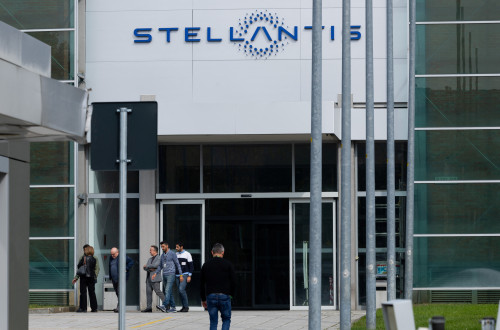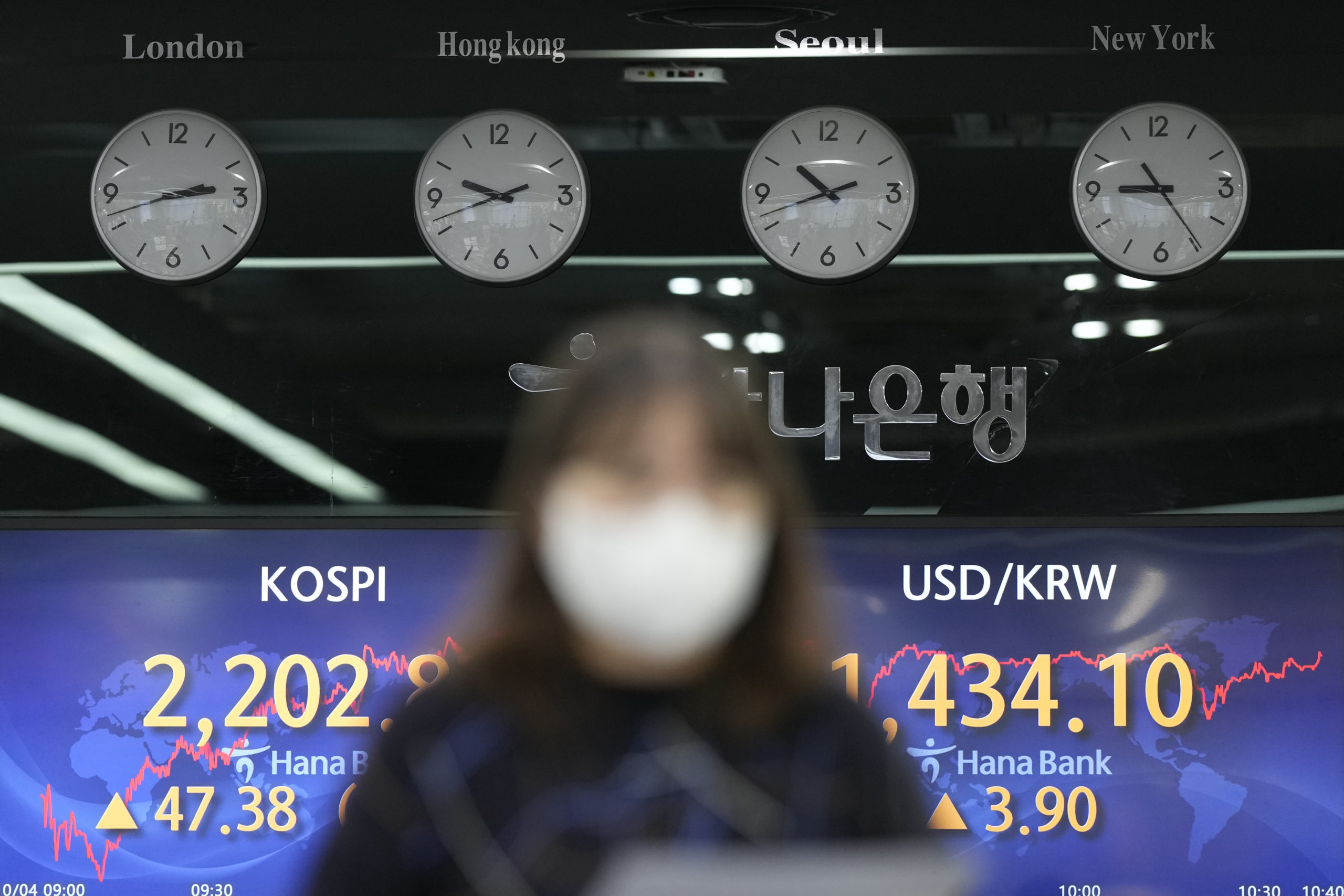 1
1 1
1
TOKYO (AP) — Hong Kong’s share benchmark soared more than 5% on Wednesday as Asian shares tracked gains on Wall Street.
New Zealand’s share benchmark rose 0.7% after its central bank hiked its benchmark interest rate to 3.5%, saying inflation remained too high and labor scarce. The half-point rate hike was the fifth in a row made by the Reserve Bank of New Zealand since February.
Statistics New Zealand said inflation was running at 7.3% and unemployment at 3.3%. The rate hike came on the same day the government announced its finances were in better shape than forecast.
The Hang Seng in Hong Kong rose 5.3% to 17,988.86, catching up with gains elsewhere as markets reopened following a holiday Tuesday. Markets in mainland China remained closed for a holiday.
Japan’s benchmark Nikkei 225 added 0.3% in morning trading to 27,079.49. Australia’s S&P/ASX 200 added 1.5% to 6,797.80. Shares in Australia got a boost after the Reserve Bank of Australia ordered a smaller-than-expected 25 basis points interest rate hike on Tuesday.
South Korea’s Kospi added 0.6% in morning trading to 2,221.43.
Analysts said the latest data on South Korea’s inflation may push the Bank of Korea to raise interest rates at its meeting set for next week, but such hikes were expected to slow in pace as inflation is brought under control.
“We expect headline inflation to rise again in October. Gasoline prices will likely decline further, but city gas and power rates were raised at the beginning of October and fresh food prices will also probably rise ahead of winter,” said a report by Robert Carnell, regional head of research Asia-Pacific at ING.
On Wall Street, the Dow Jones Industrial Average climbed more 2.8% to 30,316.32. The S&P 500 had its best day since May 2020 on Tuesday as the market clawed back more of the ground it lost over the past miserable several weeks. It surged 3.1% to 3,790.93.
Twitter surged 22.2% after Elon Musk said he would go ahead with his $44 billion acquisition of the social media company, abandoning efforts to get out of the deal.
The Nasdaq composite climbed 3.3% to 11,176.41. Small company stocks also made solid gains, lifting the Russell 2000 advanced 3.9% to 1,775.77.
The two-day rally has hit markets as investors look for signs that central banks might ease up on aggressive rate hikes aimed at taming the hottest inflation in four decades. Australia’s central bank made an interest rate hike that was smaller than previous ones.
In the U.S., a government report on job openings showed the number of available jobs in the U.S. plummeted in August compared with July. It’s a sign that businesses may pull back further on hiring and potentially cool chronically high inflation, which could allow the Federal Reserve to slow the pace of rate increases.
Investors are watching closely as central banks raise interest rates to make borrowing more difficult and slow economic growth to try to tame inflation. Investors are hoping that they will eventually ease off their aggressive rate hikes and the move by Australia’s central bank is a hopeful sign for some.
Investors worry that the rate hikes, especially the increases from the Fed, could go too far in slowing growth and send economies into a recession. The Fed has already pushed its key overnight interest rate to a range of 3% to 3.25%, up from virtually zero as recently as March.
Economic growth is already slowing globally and the U.S. economy contracted during the first two quarters of the year, which is considered an informal signal of a recession.
Wall Street will get a more detailed look at the employment situation in the U.S. this week, with a report on hiring by private companies due out Wednesday, the latest tally of weekly applications for unemployment benefits on Thursday and the government’s monthly jobs report for September on Friday.
In energy trading, benchmark U.S. crude fell 34 cents to $86.18 a barrel in electronic trading on the New York Mercantile Exchange. It surged $2.89 to 86.52 on Tuesday. Brent crude, the international standard for pricing, lost 30 cents to $91.60 a barrel.
In currency trading, the U.S. dollar was nearly unchanged at 144.12 Japanese yen. The euro cost 99.72 cents, down from 99.87 cents.
___
Damian J. Troise, Alex Veiga and Nick Perry contributed to this report.
Yuri Kageyama is on Twitter https://twitter.com/yurikageyama